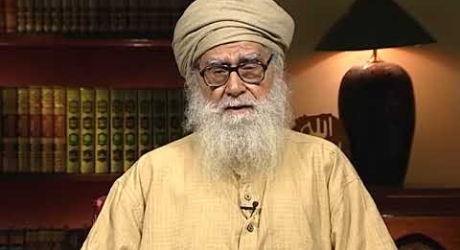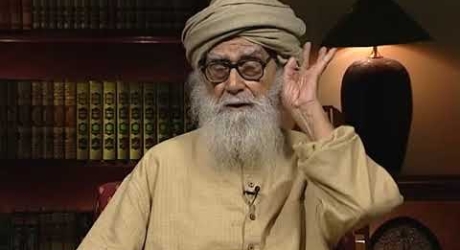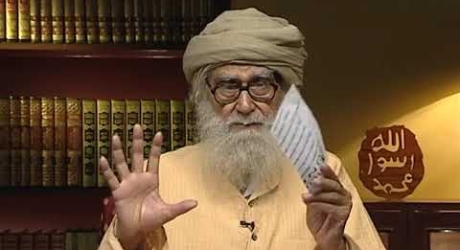Fundamental to the religious structure of Islam is the concept of tawheed, or monotheism. As the seed is to tree, so is tawheed to Islam. Just as the tree is a wonderfully developed extension of the seed, so is the religious system of Islam a multi-faceted expression of a single basic concept. For, monotheism in Islam does not mean simply belief in one God, but in God’s oneness in all respects. No one shares in this oneness of God. Anthropologists would have us believe that the concept of God in religion began with polytheism; that polytheism gradually developed with monotheism. That is, the concept of tawheed was an evolutionary feature of religion which emerged at a later stage. But, according to Islamic belief, the concept of tawheed has existed since the beginning of human life on this earth. The first man—Adam—was the first messenger of God. It was this first messenger who taught human beings the concept of tawheed.
Introduction
Tawheed or Oneness of God does not connote Oneness in terms of count alone but it is an all-encompassing term that defines His Oneness from all aspects and establishes God as the sole Controller and Sustainer of the universe. However, throughout history, two broad ideologies have been prevalent. These are namely – the ideology of man and the ideology of God and today the former is at its acme.
Ideology of Man
Ideology of man or humanism, philosophically, refers to man-oriented thinking. A scholar has defined humanism as ‘transfer of seat from God to man.’ Several books have been authored on this subject like Man Stands Alone by Abraham Cressy Morrison (1944) and Religion without Revelation by Julian Sorell Huxley (1926). Exhibited in several forms, the most extreme manifestation of this ideology was as Kingship in earlier times and is as humanism in the world today. In fact, the ideology of man has always prevailed vis-à-vis the message of tawheed propagated by the Prophets.
Ideology of God
The Ideology of God was communicated through His Prophets. According to a verse in the Quran,
“We sent Our messengers in succession.” (23:44)
However, all messengers were rejected by their people so much so that their name was obliterated from history. Amongst the many Prophets that God sent to each corner of the world, two have historical credibility – Prophet Muhammad and Prophet Abraham. A full record of Prophet Muhammad’s life and times is available as a historical fact. However, Prophet Abraham, who has been mentioned in the Bible and the Quran, became a historical Prophet, when in 1922 the entire city of
The Ideology of God ordained three broad tasks for man. The first one being the creation of a centre of Tawheed, followed by the preservation of the Book of God and lastly, to undertake the dissemination of the word of God or Itkhal-e-kalima. Let me elaborate these one by one.
Phase – I
Creation of a Centre of Tawheed
Prophet Abraham was ordained to build the House of God at
“The first (awwal) house to be built for mankind was the one at Makkah.” (3:96)
‘Awwal’ in this verse does NOT denote that Kabah was the first building erected by man. In fact, before Kabah, several local houses of worship existed. Kabah was built to be a global centre of worship. It is first with regards to it being the first global centre of worship.
God’s scheme of things sought building a global centre propagating the ideology of tawheed. The realization of this phase was possible due to the events that took place during the long period of history, beginning from the sacrifices made by Hazarat Hajra and Ishmael.
It is said that it requires a long period of history to make a culture; for instance an archaeological monument like Taj Mahal has a long history that begins from the time of Emperor Babar. Therefore a huge period of history is in the wake of any such construct. Similarly, Kabah is a very crucial building in wake of the long history associated with it. The importance of Kabah can be judged from the fact that every year, its cloth worth millions of dollar is replaced. It is because there is a history of 4000 years behind Kabah and it is history that gives importance and sanctity!
Phase – II
Preserving the Book of God
God always sent guidance to man but he could never preserve the original word of God. Time and again, it was tampered with and human interpolations rendered its sanctity questionable. So, when God decided to send the guidance to man for the last time, He vowed to preserve it Himself.
This task sought a language and a team that would accomplish the arduous endeavour. It is noteworthy to cite here that Arabic is the only language in the world that has remained unchanged in the past fourteen hundred years, that is, since the time of the Prophet Muhammad. No other language has remained unaltered for such a long period. For example, in the last 500 years, English has changed many styles - from Chaucer to Shakespeare to the present-day style. Whereas by way of exception, Arabic has remained unaltered even till date.
The task of preservation of Book of God was not a simple one and it demanded immense sacrifice, which was made by Prophet Abraham and his family. Prophet Abraham was so devoted to the cause of God that he left all his worldly concerns and singularly focused on his mission. Prophet Abraham settled his wife Hajra and son Ishmael in the desert
Besides doing dawah work, the Companions accomplished the great feat of preservation of the Book of God (Quran). In fact, Islamic empire was not established for political purposes but to facilitate the preservation of the Book of God. According to a tradition, Prophet Muhammad made the Companions pledge the following:
“We will not confront the rulers.” (Al-Bukhari)
Herein lay great wisdom because in seeking such a pledge the Prophet ensured that the Companions do not fall prey to any sort of distraction. Soon after the death of the Prophet, other Muslims succumbed to political confrontation but the Companions stayed away from all such activities. It was only then that they could accomplish the assigned task of preservation of the Book of God.
It is crucial to understand the reason due to which previous messages could not remain preserved. Despite the number of messengers estimated at over a lakh, the task remained unaccomplished. This was due to the lack of a focal point. None of these messengers could get the support of a team which could work as a binding force. Only when individuals are bound by a common thread, does a sense of unity arise in them. At the time of the Prophet Muhammad, the Kabah had become the symbol of tawheed (monotheism) and consequently the binding point for those who believed in One God.
The Quran as we have today is a result of the fervent efforts made by the Companions. For example, Arabic as a language was used only in speech and its grammar and dictionary were not defined. Lugvi Al-Assmai (d.828AD) researched each word and created an Arabic dictionary. An anecdote recounts that during his research days, Assmai wanted to know the literal meaning and usage of the word ‘damdama’. He did not simply go to the (Bedouin) tribes (of
It is fascinating to learn about the process that resulted in the preservation of Quran. In days when neither paper nor the printing press existed, Quran was memorized by thousands of people. At the time of compilation, the written inscription (done by scribes on hides, stone tablets etc.) was tallied with what was memorized to ensure double-checking and hundred percent accuracy. After the invention of the printing press, the role of committing to memory faded. Earlier when hand-written, each copy bore a different style. But after printing press, this was no longer the case and dissemination became much easier.
Similarly, the compilation of Hadith was crucial to enhance the understanding of the Quran. During the Abbasid period, when the work of compilation began grave problems and evils existed, but unlike today, believers never used them as excuses. In fact, they totally ignored these problems and singularly focused on the task at hand. Fraught with issues, if these men would have fought against the offenders, all the Muhadditheen (Hadith experts) would have been dead and this storehouse of wisdom would never have reached man.
Phase – III
Dissemination of the Word of God (Itkhal-e-kalimah)
Believers have the prime responsibility of doing dawah work and spreading the word of God. If they do this, they would be successful or else they would be doomed to failure. In order to do effective dawah, believers must adopt the method of Prophet and his companions. According to a Hadith,
“No house on Earth – big or small – will remain but God’s Word shall enter into it.”
(Musnad Ahmad)
As I pondered over this Hadith, it became clear that it is with reference to today’s times because when Quran was revealed, the knowledge of geography was very limited hence spreading the message far and wide (since a large part of the world was unknown then) would not have been possible.
It says that God shall enter His word in every house – big or small. This is to say that God will create such circumstances and situations as would enable reaching out to all corners of the world. The present age which has brought about the multimedia revolution, religious tolerance and a scientific bent of mind has changed the intellectual landscape of the world and opened up unlimited avenues for the coming to fruition of this Hadith.
Today, man wants to know the reality of life. It is therefore obligatory upon us to do dawah and guide him to the truth. In keeping with the spirit of dawah that demands sympathy and well-wishing, believers must vow to relinquish all forms of political protests and singularly focus on the mission. The seriousness of the issue is amplified many times, by the fact that doomsday is fast approaching and nothing and no one will be able to deter it, when the moment arrives. According to the Quran,
“It (doomsday) lies heavy on the heavens and the earth: it will suddenly overtake you.” (7:187)
This is to say that if the entire universe were like a pregnant woman, doomsday is like the foetus, which is yearning to come out in the world. This verse demands serious thinking because if doomsday is so near then the process of itkhal-e-kalimah must reach its culmination before it strikes.
The responsibility assigned to both Prophet Abraham and Prophet Muhammad has been accomplished in totality. The world today is yearning for the message of God, and it is therefore incumbent upon believers to prioritise the task of dissemination of the word of God. If they remain caught up in petty concerns, believers will have no justification on the Day of Judgment.
May God help us understand its importance and accept our dedication to the cause!








